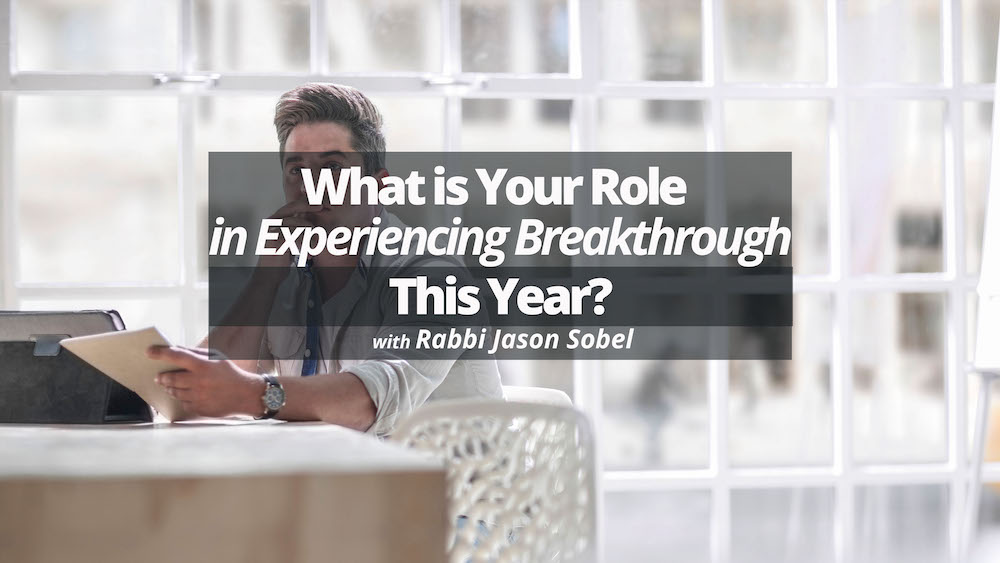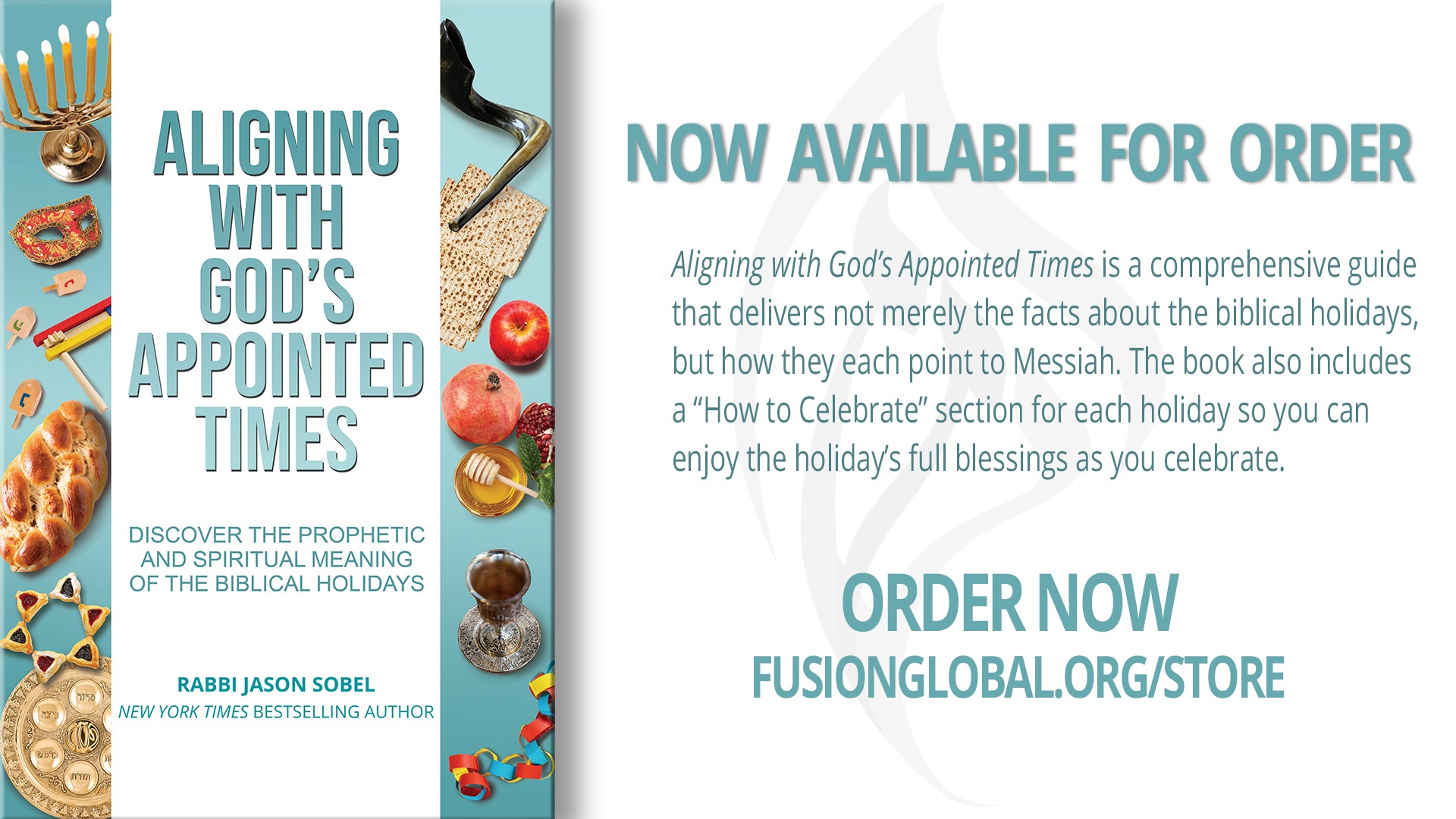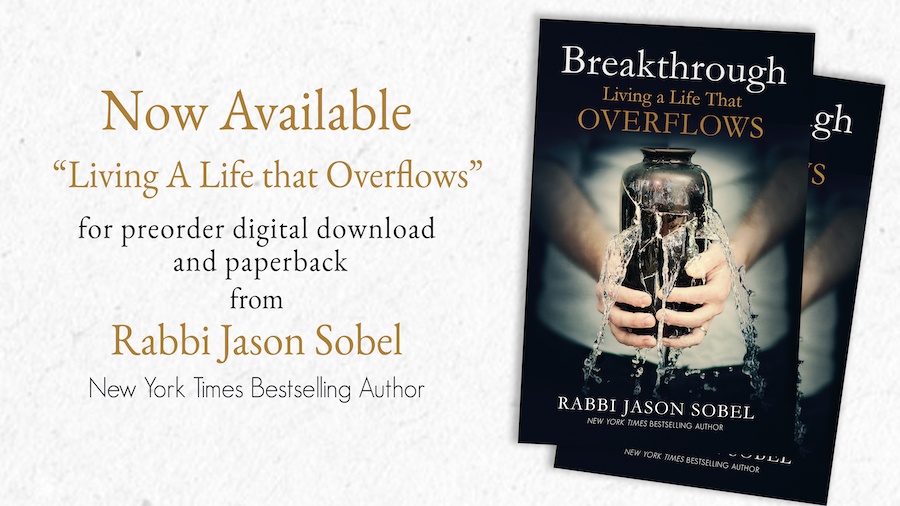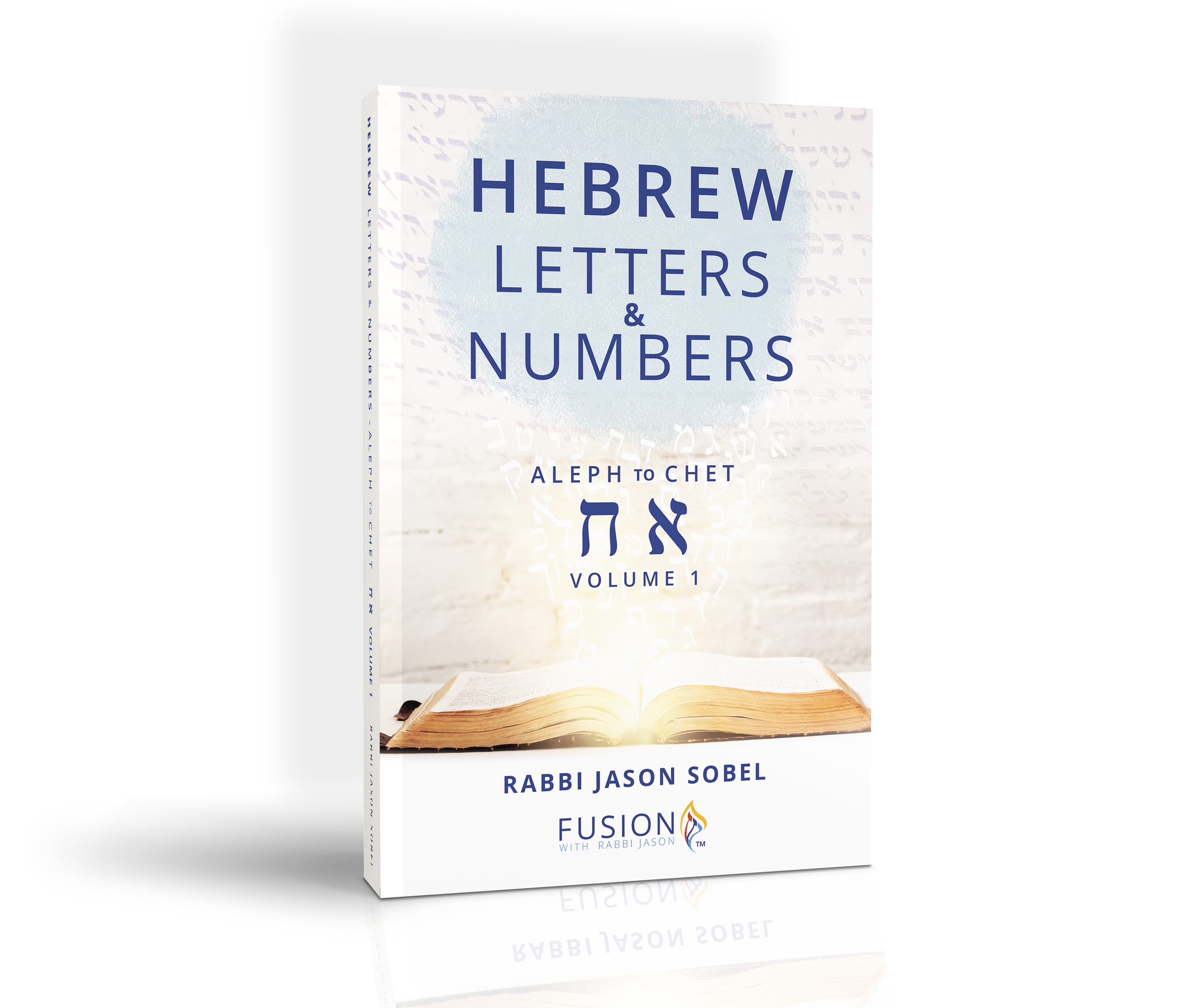What is Your Role in Experiencing Breakthrough in Your Life This Year?


Aligning for Breakthrough
Most people want to experience “the good life.” What that is, exactly, differs from person to person. As followers of Yeshua, we know that He is both the essence of the good life and the way to it. As the Lord said, “I am the way, the truth, and the life! No one comes to the Father except through Me” (John 14:6). However, the fruitful, abundant life God promised us is not a given. Therefore, we must sincerely and humbly seek first His Kingdom (Matt 6:33) and abide in Yeshua (John 15). One word embodies this seeking and abiding: alignment. Alignment occurs as we surrender to God’s grace in every area of our lives.
Alignment, then, is crucial to experiencing all that God has for us. There are three areas of our lives for which each one of us is responsible:
- Our time
- Our treasure
- Our talents
We bring our treasure into alignment by giving. We bring our talents into alignment by service and ministry. So how do we bring our time into alignment? Typical answers might include “daily devotions” or “Sunday worship,” which are great responses. But of course, there’s more! Starting on the seventh day of creation (i.e., Shabbat or Sabbath), God established holy rhythms to our experience of time. Then, later in the Torah, God introduced more opportunities to align our time with His will—they’re called the Feasts of the Lord (or biblical holidays). Even though you might not be Jewish, as a member of the Body of Messiah (who was Jewish, of course), you have a standing invitation to participate in these “appointed times,” thus aligning your time with God and His kingdom.
There are two aspects to this alignment. First, there is a general alignment of understanding the biblical times and seasons (or “holidays”). These biblical holidays are not merely remembrances or past events— they have the power and potential to be present activations. In other words, what God did for the great men and women of faith throughout history, He wants to do again in our lives today. So in this sense, biblical holidays have the potential to be supernatural reoccurrences in our lives. And the second aspect of this conversation is alignment is specific seasons—what God is doing uniquely right now: this year, this month, this day, specifically.
To align with a biblical understanding of a specific (civic) year, I think we need to consider the biblical significance of the Hebraic year, which begins in the fall at Rosh Hashanah. I don’t think one can understand the spiritual meanings of 2022 without first understanding that of the Hebrew year, which is 5782. This Hebrew year is one of shalom and shleimut—peace and wholeness.
On a deeper level, this concept connects to the idea of “breakthrough” and coming out of Egypt. There are several fascinating connections between the story of the Jewish people’s enslavement in Egypt and the letter peh.
Which evil man enslaved the Jewish people? Pharaoh, whose name begins with peh.
What meal did the Israelites eat before leaving? Passover, which begins with peh.
The Hebrew word for “redemption” is podar, and it begins with the letter peh.
God invited Moses into his calling at the burning bush when he was 80 (peh) years old.
We’re living in the ‘80s right now. I’m not talking about the 1980s. I’m talking about the 5780s, the current decade on the Hebrew calendar. What is significant about the 80s in the Hebrew calendar?
Hebrew is alphanumeric, meaning one writes numbers using letters. And so, the Hebrew letter that represents 80 is peh. The letter peh has several meanings. It means “the mouth.” In this sense, the 5780s is the decade of the mouth. It pays to have a big peh. Well, not a big mouth in a negative connotation, but a positive one. For instance, God created the world through speech. The power of the peh is the power of the mouth. The power of declaration is the power of speaking the truth and proclaiming the promises of God.
The overall theme of the 5780s (on the Hebrew calendar) is: coming out of Egypt, breaking through that which hinders us. The Hebrew word for “Egypt” (Mizraim) means a place of confinement or restrictions. There are so many things that want to restrict us, from within and without. We’re living in the decade to “breakthrough” the self-limitations much like the ones Moses put on himself: I’m too old (80 / peh), my mouth (peh) doesn’t work. In our situations, this may sound like, “I don’t have enough education,” or “I’m not beautiful enough,” or “I’m not smart enough.” Those inner voices restrict us by convincing us we’re not good enough or qualified to succeed.
And then there are the “personal pharaohs,” those external forces that try to limit and confine us. There are spiritual powers attempting to box us in and beat us down. They hinder us from becoming the person God created us to be. The enemy wants to stop us from fulfilling the mission and calling God has given us.
To experience breakthrough and be able to step out of Egypt in this specific year (5782) of the “decade of the peh,” we need God’s shalom (divine peace) and shleimut (supernatural wholeness) in our lives. In Jewish thought, shalom is the ultimate blessing. If you have every blessing but don’t have peace, you don’t have anything. For this reason, God commanded Aaron to pronounce a blessing over the Israelites known as the “Aaronic benediction.” Interestingly, you do “Spock hands” when you pray this blessing in Hebrew, physically symbolizing the presence of God coming down through the extended hands to the people. In essence, “Spock hands” requires that you form a triangle with your hands, and the triangle represents the triune nature of God. In rabbinic thought, the foundation of the world stands on three things (the Torah, prayer, and deeds of kindness).
The last expression in the Aaronic benediction, “May He cause His face to shine upon you” (v’ya-sem l’cha sha-lom in Hebrew), equals 782, as in the year 5782. We have to believe that as we pray the words of this prayer (“Spock hands” optional), God shows up and is present to us. We need to expect His face to shine on us this year, to be looking for it. In God’s presence, we not only find the fullness of joy (Psa 16:11) but liberty and freedom. You might remember the account of Paul and Silas, confined in a Philippian prison. As they opened their mouths (i.e., peh) in praise, “the foundations of the prison were shaken [and] immediately all the doors were unlocked, and everyone’s chains came loose” (Acts 16:26). Talk about a breakthrough!
As we align ourselves with these powerful truths “hidden” in this specific (5782) season of peace and wholeness, how can we not use our peh (“mouth”) in praise and thanks to our heavenly Father? And we know that He inhabits our praise (Psa 22:3), revealing “the light of the knowledge of the glory of God in the face of Messiah” (2 Cor 4:6). This experience is the greatest blessing we could seek!
FREE WEEKLY TORAH PORTIONS:
"In this book, (Mysteries of the Messiah) Rabbi Jason Sobel helps readers (especially Christian readers) really grasp the Jewishness of Jesus. It is clear that the author has done much research of both the Old and New Testaments and helps readers see their continuity throughout the Bible. As a Christian, I tend to focus more on the New Testament, but this book has given me greater insight to how the Old Testament points to Jesus as the Messiah."
What is Fusion with Rabbi Jason?
It is in looking back at what God has done that we can see forward to His future plans for us. “For I know the plans I have for you,’ declares the Lord, plans to prosper you and not to harm you, plans to give you hope and a future” Jer 29:11.
At Fusion Global with Rabbi Jason Sobel, we want to add definition to your faith as we restore the lost connection to our ancient roots and rediscover our forgotten inheritance.





